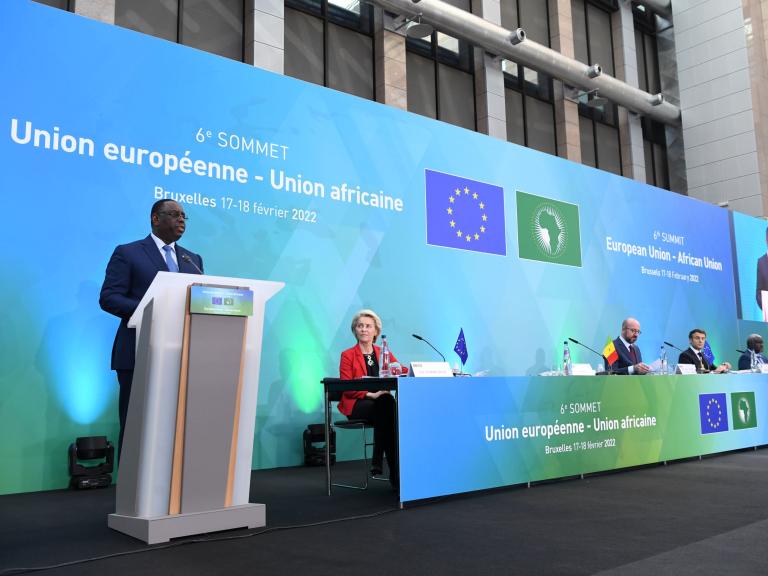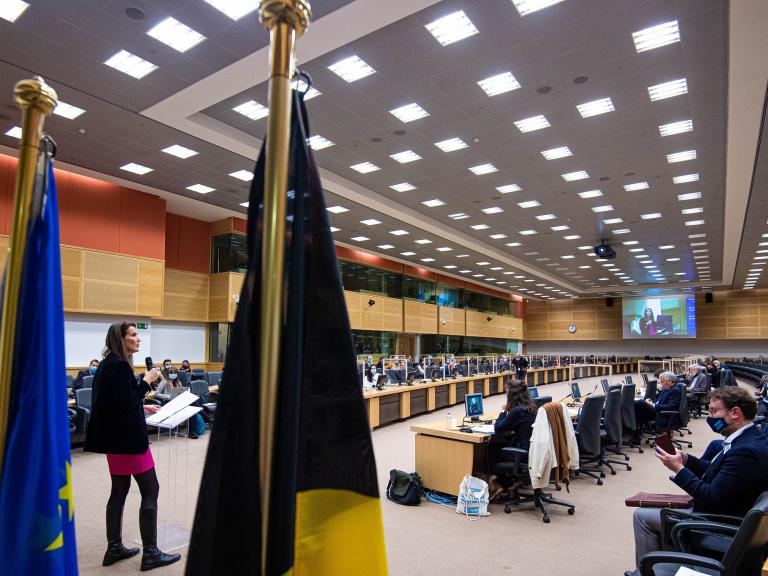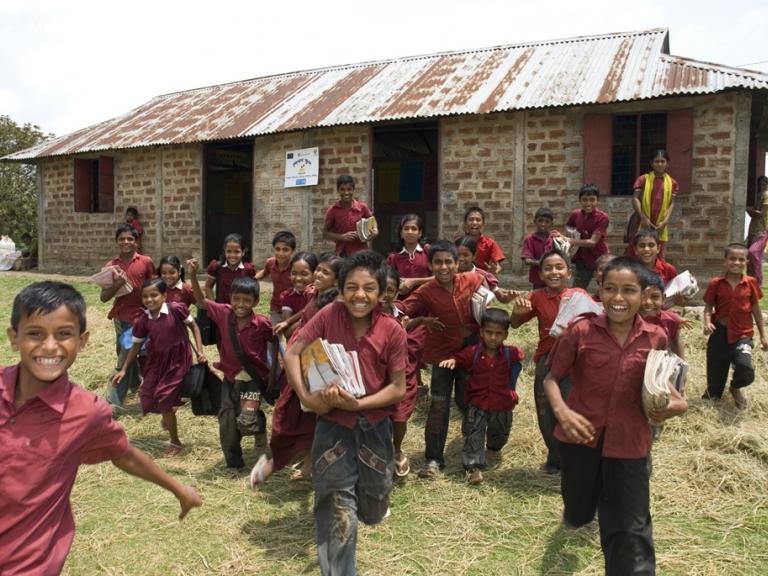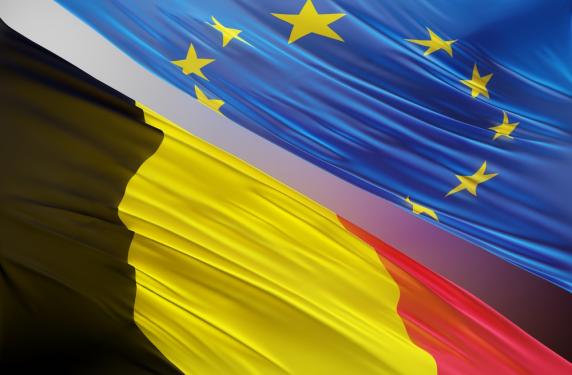-
Last updated on
Our mission
Coordinate the position of Belgium in order to allow our country to speak with one voice on the European scene. This coordination work is prepared by the DGE that regularly convenes meetings with different partners, depending on whether the subject on the level of the European Union level involves a federal competence and/or a competence of the federated entities. The DGE holds the presidency of these coordination meetings and acts as secretariat. The objective is to determine the Belgian position, both from a general point of view and for each item on the agenda of the Council of the European Union and of the European Council meetings.
Once the Belgian position has been defined in the coordination meeting, the Minister of Foreign Affairs informs the Permanent representation of Belgium at the European Union, with a copy to the ministers concerned. The Permanent Representatives and Deputy Permanent Representatives Committee of all Member States of the European Union (COREPER) prepares the work of the Council of Ministers of the European Union. The Council of the European Union brings together the member state ministers who are competent for the items on the agenda in order to adopt laws and coordinate European policies. The European Council brings together the heads of state and government in order to define the main orientations and the political priorities of the European Union.
The mission of the DGE, as well as the division of competences to define the European policy of Belgium, have been described in the cooperation agreement (PDF, 1.55 MB) between the Federal state, the Communities and the Regions concerning the representation of Belgium within the bodies of the European Union.
Our structure
The DGE is composed of a multidisciplinary team of 60 persons, acting under the responsibility of director-general ad interim Bernard Quintin.
The directorate-general "European Affairs and Coordination" comprises:
- 1 service E0.0 ensures the coordination (organisation and follow-up of the coordination meetings, preparation of the European Council and the General Affairs Council), general management of the DGE and raising public awareness.
- 1 team E0.1: Strategic autonomy / Coordination Fit for 55 / Follow-up to Brexit (phase out).
- 1 team E0.2: Coordination Presidency EU 2024.
- 6 directorates sharing responsibility for the coordination of the European policy of Belgium within the European Union.
- The directorate-general
- The service E0.0
- The team E0.1
- The team E0.2
- The directorate E1
- The directorate E2
- The directorate E3
- The directorate E4
- The directorate E5
- The directorate ME6
Press service of the FPS Foreign Affairs, Foreign Trade and Development Cooperation
The directorate-general
The directorate-general ensures that the DGE defends the Belgian interests within the EU and guarantees the effectiveness of the European policy in a spirit of concertation and collaboration with all federal and federated partners.
The service E0.0
E0.0 is in charge of the preparation, coordination and follow-up of horizontal dossiers concerning the DGE and is responsible for the coordination and preparation of the European Council and the General Affairs Council.
E0.0 is responsible for logistical and administrative coordination support:
- Management of the database of participants in the coordination process;
- Organisation and planning of coordination meetings.
E0.0 collects and shares information on Belgian communication activities related to the European policy. E0.0 monitors the interinstitutional collaboration between Belgium and the European Institutions. E0.0 serves as a contact point to inform the general public about Belgian communications on Europe and the role of the DGE.
E.0.0 is responsible for personnel, budget and infrastructure management.
The team E0.1
The team E0.1 coordinates the follow-up of the new relationship EU-UK, of the Strategic autonomy and of Fit for 55.
The team E0.2
E0.2 coordinates the preparation (programme, budget and logistical organisation) of the Belgian Presidency of the Council of the EU in 2024.
The directorate E1
The directorate E1 is responsible for:
- monitoring the Intergovernmental conferences and more generally the institutional reforms of the Union for Belgium;
- following up the philosophy of all Member States with regard to the European process for Belgium;
- managing the European dossiers relating to the functioning of the institutions of the Union for Belgium;
- following up and coordinating the Belgian position in the Justice and Home Affairs Council (including civil protection) and in the Education, Youth and Culture Council (including audiovisual media);
- the Belgian coordination in the framework of the relations with the Regions and Communities, the preparation of European files to be submitted to the Interministerial conference of foreign policy and to the group “mixed treaties”;
- the coordination of the Belgian position with regard to the ratification of European treaties;
- preparing the Conference on the Future of Europe;
- the correct and timely transposition of the European directives in Belgium, in order to avoid infringement proceedings that can result in a conviction with financial penalties imposed by the European Court of Justice;
- the management of the EU Pilot files aimed at resolving in an informal setting and with the Commission questions or complaints from the Commission, from citizens or from companies with regard to the correct application or the conformity of Belgian law with the law of the European Union.
The directorate E2
The directorate E2 is responsible for following up and coordinating the Belgian position with regard to:
- the European agenda relating to the socio-economic governance of the EU, and more specifically to the implementation of the Europe 2020 Strategy;
- the functioning of the Economic and Monetary Union;
- the management of the debt crisis within the euro zone;
- the European tax structure and the regulation of the financial sector;
- the ECOFIN and EPSCO Council (employment/social affairs component);
- the Multiannual Financial Framework 2021-2027 of the Union and the annual European budget.
The directorate E3
The directorate E3 is responsible for:
- the follow-up and coordination of the Belgian position in the Competitiveness Council (internal market, industry, research and innovation, space);
- the follow-up and coordination of the Belgian position in the Transport, Telecommunications and Energy Council and of the European dossiers on nuclear power for civilian purposes;
The Belgian SOLVIT Centre forms part of the directorate E3. This informal European network helps citizens and companies solve problems resulting from the incorrect application of the internal market rules by public administrations from other member states.
The directorate E4
The directorate E4 is responsible for the follow-up and coordination of the Belgian position with regard to:
- the Agriculture and Fisheries Council;
- the Environnement and Health Council;
- the Climate dossier together with the directorate Sustainable development of the DG Multilateral Affairs and Globalization of the FPS Foreign Affairs;
- the dossiers of the Special Committee for Agriculture and of the COREPER I (Permanent Representatives Committee of the Member State) submitted to concertation between the Federal state and the Regions within the permanent working group of the Interministerial Conference of Agricultural Policy.
The directorate E5
The directorate E5 is responsible for the follow-up and the coordination of the Belgian position for:
- the commercial issues falling within the competence of the European Union (more specifically via the activities of the Trade Policy Committee of the EU) and for their follow-up on the international level, within the World Trade Organization or in other multilateral fora.
The directorate ME6
The directorate ME6 is responsible for the follow-up and the coordination of the Belgian position for:
- the EU’s external policy, including the Common Foreign and Security Policy;
- the enlargement process;
- the follow-up of all International Framework Agreements of the European Union;
- the coordination of the Foreign Affairs Council (including its Defence and Development Cooperation Ministers format).

EU-AU summit: two unions, one vision
In Brussels, the European and African Union developed a hopeful plan for the future that should bring prosperity and stability t...

EU: more democracy in practice
Geography teacher Rafik Kiouah talks about his participation in a Belgian citizens' panel on a more democratic EU as part of the...

The EU joins forces for external action
The European Union is combining various funding channels into a single instrument: Global Europe. The simplification will give t...
